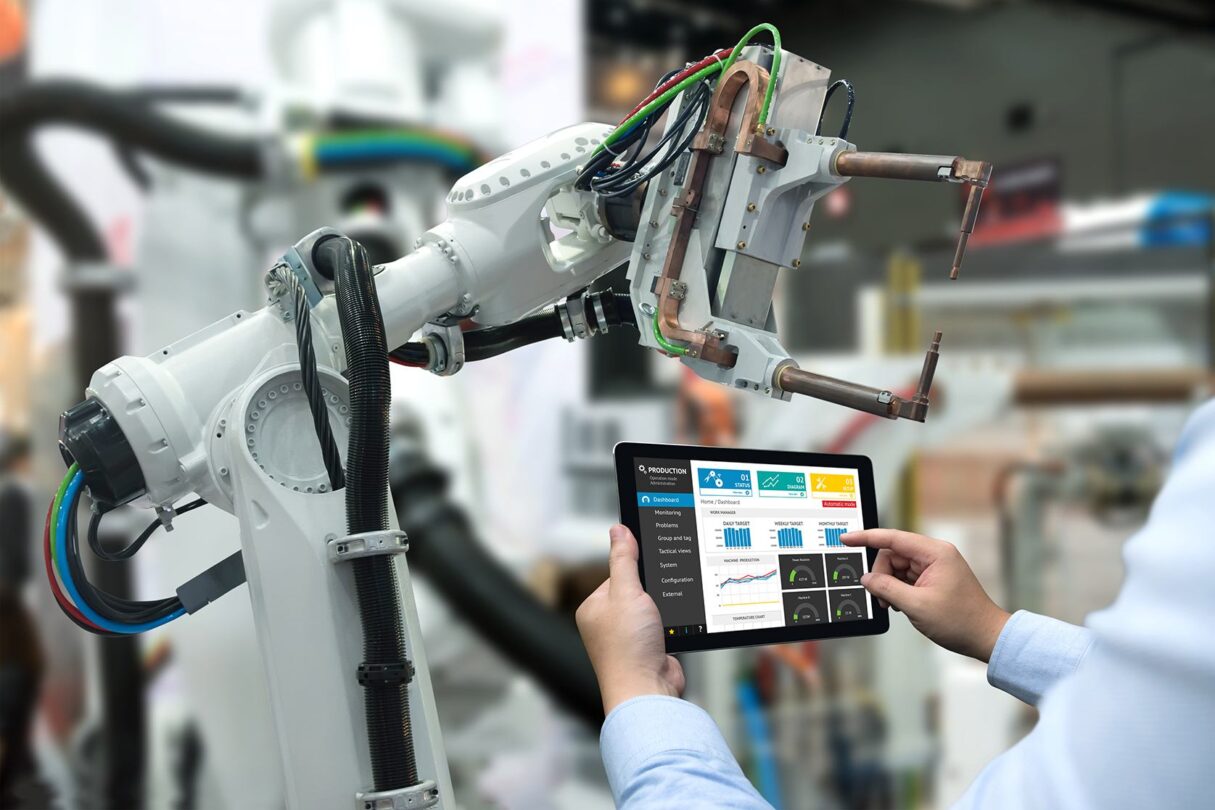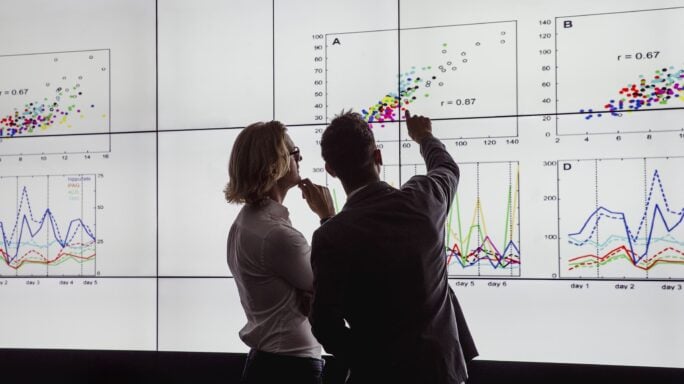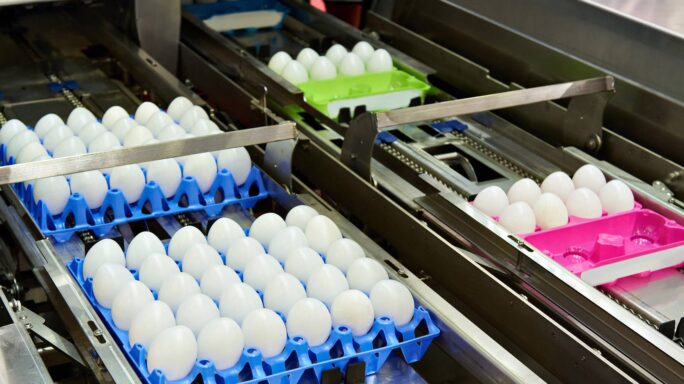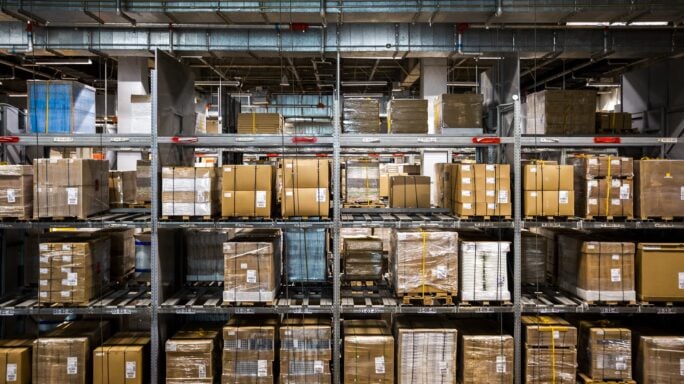Technology & Innovation
The state of blockchain in 2021
What is blockchain? Here's what you need to know about blockchain, how it works, and how it benefits manufacturers, retailers, and consumers.

Once considered a leading edge technology, blockchain is now an innovation and customer experience enabler in many industries.
According to Deloitte’s 2020 Global Blockchain Survey, 55% of respondents view blockchain as a top priority. 86% believe there is a compelling business case for blockchain within the organization.
But what is blockchain, exactly, and what role does it play in digital transformation? Here’s a look at what blockchain is, how it works, and how it delivers value to manufacturers, retails, and consumers.
Move beyond ERP with Sage X3
Take control of your entire business.
From supply chain to sales with Sage Business Cloud X3. Software for established businesses looking for greater efficiency, flexibility, and insight.

What is blockchain?
Blockchain is a mutually distributed ledger of transactions that everyone involved can see but no one can alter after the fact. Because of the security and transparency it enables, especially when dealing with threats like cybercrime, blockchain can be thought of as an architecture of trust that allows various parties to confidently do business with one another.
Although blockchain’s rise to fame is attributed as the underpinning technology behind bitcoin cryptocurrency transactions, it has powerful applications for the manufacturing and retail sectors today.
When two or more parties use a blockchain to permanently record shared transactions, each of them possesses a copy. They cannot edit a previous transaction—they can only add a new transaction.
Every time someone records a new transaction, a time stamp is automatically added to it and all of the other parties subsequently receive that update. This decentralized framework makes it much easier to validate the authenticity of transactions, which in turn creates the foundation of trust necessary for fruitful business relationships.
How does blockchain enhance the consumer experience?
Although consumers don’t directly interact with blockchain technology, they do benefit from it.
Many consumers expect transparency and accountability from the brands they choose. This is especially true when it comes to sustainability and human rights.
So it’s not uncommon for consumers to demand that their favorite brands work with suppliers with ethical business practices. In many cases, blockchain enables the supply chain transparency that consumers seek.
For example, a consumer looking at buying an engagement ring wants an ethically sourced diamond. The jewelry retailer uses blockchain technology to record and verify the suppliers and materials involved with creating that ring. This provides a transparent and precise accounting of the jewelry.
As a result, the consumer is empowered to make an informed purchase decision. Consumers will especially appreciate this transparency in cases where authenticity is a concern.
Another benefit of this transparency? Order statuses.
Historically, supply chain transactions have been difficult and time-consuming to accurately track and verify. But blockchain simplifies the process of managing inventory between suppliers and manufacturers. As a result, customers get answers much more quickly.
Also, companies can use blockchain to implement smart contracts that facilitate timely payment between suppliers and manufacturers. This further aides the flow of goods and ultimately improves the customer experience.
Prevent supply chain issues before they arise
Download this IDC report to learn how to adopt a proactive traceability strategy to lower costs and achieve competitive differentiation.

How can manufacturers and retailers take advantage of blockchain?
Blockchain increases supply chain visibility. In light of the global supply chain problems caused by the pandemic, this should be of great interest to manufacturers.
For example, manufacturers can create a blockchain to quickly and accurately track materials as they move throughout the supply chain, recording when and where they arrived in specific locations. Additionally, they can also track who handled them at the time they were received.
This improves traceability and compliance, reducing business risk. It also increases operational efficiency, enhances customer service, and can boost revenue growth.
Retailers can also tap blockchain traceability to enhance supply chain management.
French multinational retailer Carrefour has used blockchain to implement global food standards for its Carrefour Quality Line products. This makes it easier to verify crucial information to consumers, like nutritional value and potential allergens.
Blockchain helps retailers quickly determine the provenance of ingredients in a specific product. This is essential for maintaining consumer trust in an event like a food safety incident.
Additionally, retailers can use blockchain to prevent counterfeit items from being sold to consumers and avoiding potential damage to the company brand.
Blockchain powers innovation for manufacturing and retail
Manufacturers and retailers that haven’t implemented blockchain should consider its business advantages and its value as a digital transformation enabler.
According to the Deloitte survey, 39% of respondents had already brought blockchain into production as of 2020. Given the shock waves that the pandemic sent throughout the global supply chain, blockchain’s use cases for supply chain traceability and management may be especially attractive now.
Manufacturers and retailers can use blockchain to accelerate key supply chain processes and improve compliance. They can also tap blockchain to improve the customer experience, increasing their competitive prospects in a dynamic market. With all of the benefits that blockchain offers, there’s never been a better moment to explore this technology’s innovative potential.






Ask the author a question or share your advice